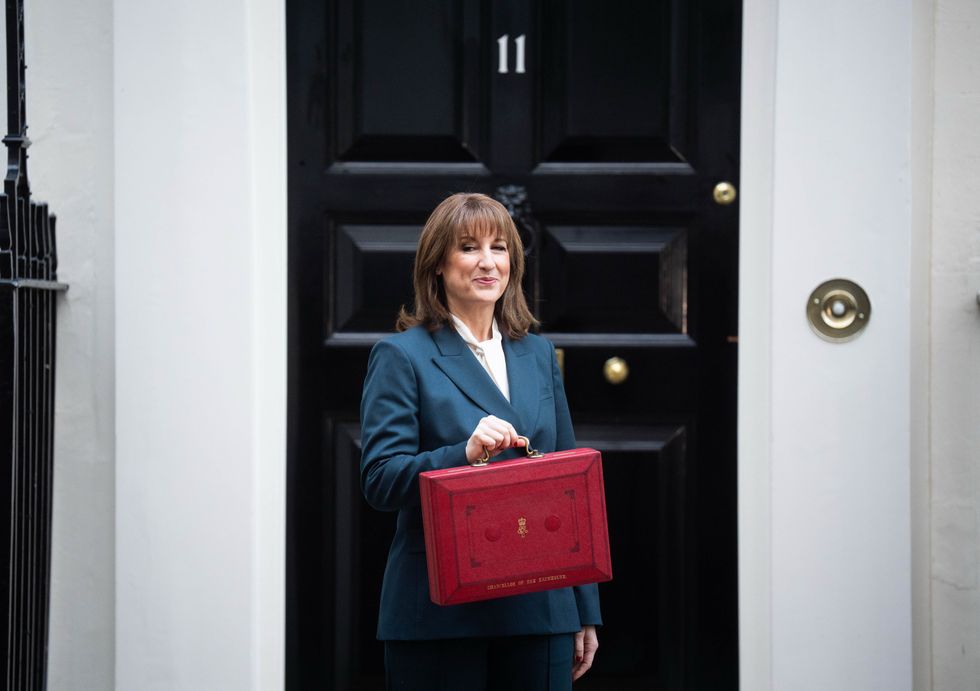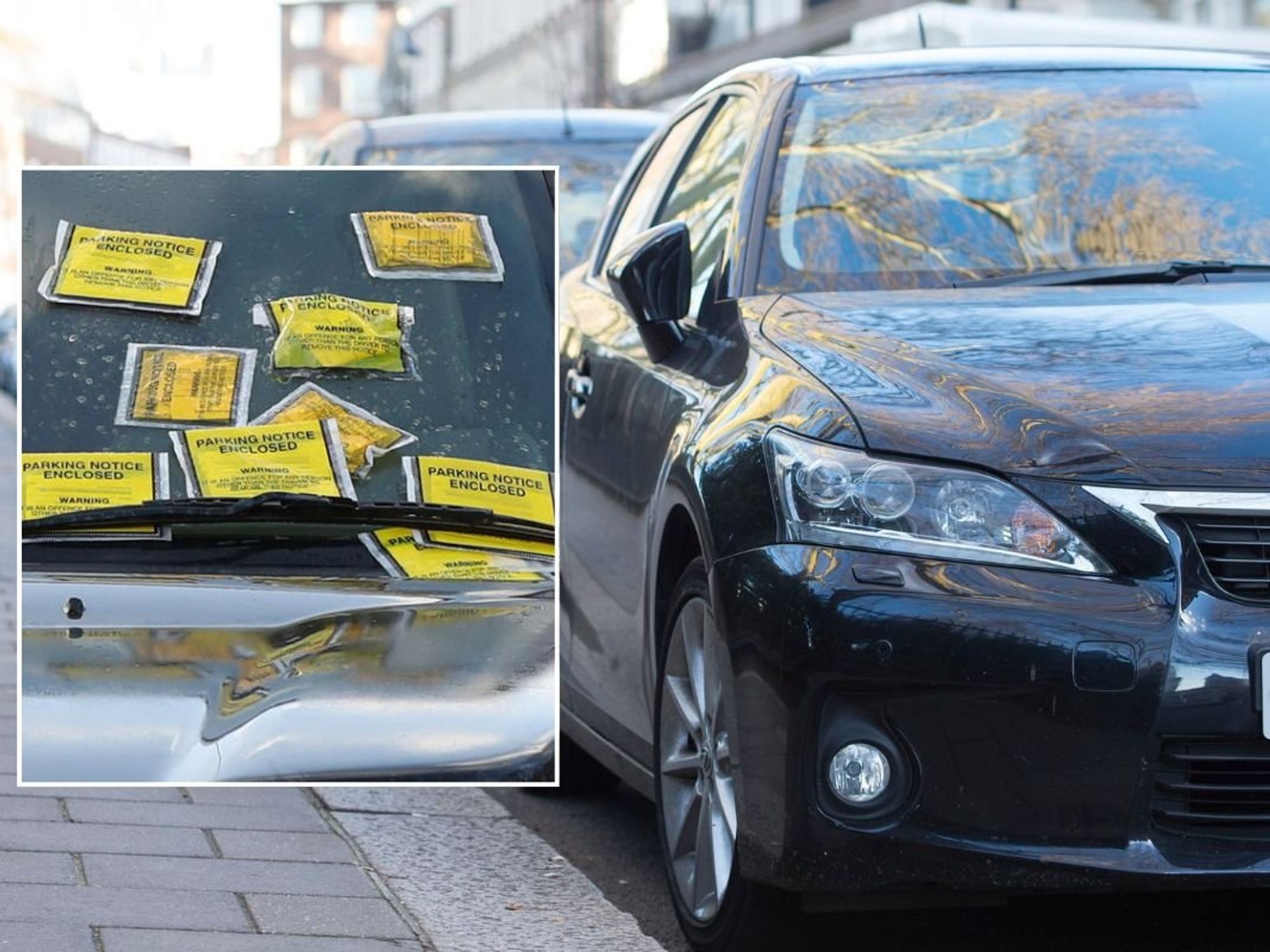Rachel Reeves unveils major inheritance tax changes in Budget - with some payments now 'exempt'
Chancellor Rachel Reeves announces changes to wider inheritance tax rules, after controversial measures last year affecting farmers |
GBNEWS

The government says the reforms are intended to ease pressure on families affected by the tax
Don't Miss
Most Read
Rachel Reeves used her Budget to announce a new wave of inheritance tax reforms, signalling her stamp on one of the most politically charged parts of the tax system.
The chancellor confirmed that some payments will now be exempt from the levy as part of the updated framework.
The announcements follow months of speculation about how the system might change and what it would mean for those caught by the tax.
Key measures include exempting compensation from the Infected Blood scheme and allowing agricultural and business property relief allowances to be transferred between married couples.
At the same time, inheritance tax thresholds will remain frozen for an extra year until 2030-31, a move that has already prompted criticism from financial experts.
Rish Sareen, CEO and founder of Trustestate, outlined the key inheritance tax changes announced in the Budget
Infected blood compensation exemption
Compensation paid under the Infected Blood scheme will now be treated differently for inheritance tax purposes. Beneficiaries will have two years from the date they receive compensation to redirect it to others as an exempt gift, a change designed to prevent unexpected tax charges where compensation is paid long after a victim has died.
The Chancellor declared that all compensation from the Infected Blood scheme would be completely free from inheritance tax, irrespective of how these funds are inherited by beneficiaries.
Ms Reeves told MPs during her Commons address: "I will not allow the legacies of Conservative neglect to stain our society."
She emphasised that taxpayers' money should address historical wrongs and strengthen public services rather than being squandered on inefficiency.
The exemption ensures that victims' families can receive their full compensation without tax implications when funds are passed to the next generation.
The Chancellor said: "I will exempt all payments from the Infected Blood scheme from inheritance tax regardless of the circumstances in which those payments are passed down to children.
"That is how we should be spending taxpayers’ money; on dealing with injustices and on strong public services, not on waste and inefficiency.
Transfer of unused APR/BPR
From April 2026, the first £1million of agricultural and business assets will continue to qualify for 100 per cent inheritance tax relief, while any value above that will attract only 50 per cent relief.

The Chancellor declared that all compensation from the Infected Blood scheme would be completely free from inheritance tax
|GETTY
Crucially, the full £1million allowance will now be transferable between married couples, meaning any unused relief can be passed to a surviving spouse rather than lost on first death.
Experts say the change will make it easier to pass on farms and family businesses without complicated estate structures, although there may still be situations where using the allowance on first death remains preferable for tax planning reasons.
David Chismon, Partner at Saffery, called it long overdue, saying: "There has been persistent lobbying over the last 12 months to make this change and it is very welcome that the Government has finally decided to see sense."
He noted that the move will simplify estate administration, though many property owners have already restructured assets since transfers were initially ruled out.
Jeremy Croysdill, Executive Director of Wealth Planning at Brown Shipley, described the reform as "one of the few surprises in today’s Budget", adding that it "will reduce the burden for many married individuals who want to pass their business to the next generation, but whose estates do not have sufficient liquidity to pay any inheritance tax charge."
 Less than four per cent of estates paid inheritance tax in 2020-21, the latest HMRC figures show | GETTY
Less than four per cent of estates paid inheritance tax in 2020-21, the latest HMRC figures show | GETTYWill Johnstone, Partner at MHA, called the update a "welcome common-sense simplification", saying it mirrors the transferable nil-rate band introduced in 2007.
He suggested the measure should be "revenue-neutral for any well-advised taxpayer", arguing that it removes unnecessary complexity from the inheritance tax framework on farming and business estates.
IHT thresholds frozen until Apr 2031
Inheritance tax thresholds have been frozen for longer, with the £325,000 nil-rate band, the £175,000 residence allowance, and the £1million cap on full agricultural and business property relief all remaining unchanged until April 2031.
As property prices and estate values continue to rise, more estates will fall into the tax net and less relief will be available on qualifying business and agricultural assets.
Experts warn this will reduce the amount inherited by the next generation, prolong the probate process and increase the chances of families facing inheritance tax unexpectedly. By the end of the freeze, the Treasury expects the levy to raise £14.5billion a year.

Freezing the thresholds is effectively a way for the government to raise more money
| GETTYThe decision maintains the current system without addressing calls for comprehensive reform. The prolonged threshold freeze means increasing numbers of households with moderate wealth will face inheritance tax bills as property values climb.
The £325,000 inheritance tax allowance and the £175,000 home allowance have not increased in line with rising property prices, especially in areas where homes are expensive.
Financial experts say freezing the thresholds is effectively a way for the government to raise more money, changing inheritance tax from a levy on the very wealthy into something that increasingly affects ordinary families.
Neil Kilcoyne argued: "The government frames this as fiscal responsibility, pointing to record inheritance tax receipts of over £8billion last year. But critics rightly call it a cynical revenue grab."
He questioned whether the levy still serves its intended redistributive function: "Inheritance tax was once sold as a levy on privilege. Today, it risks becoming a penalty on prudence - punishing families who worked hard, saved diligently, and hoped to pass something on."
The freeze represents "taxation by inertia" rather than genuine policy reform, according to experts.
Pension benefits and IHT payment
From April 2027, pension funds brought into the scope of inheritance tax will be subject to new rules on payouts.
Personal representatives will be able to ask pension scheme administrators to withhold up to 50 per cent of any taxable pension benefits for up to 15 months after death while they calculate the estate’s inheritance tax liability.
The change is intended to protect executors from being personally liable for tax if previously unidentified pensions come to light, but it could also lead to delays in beneficiaries receiving pension payments.
More From GB News










